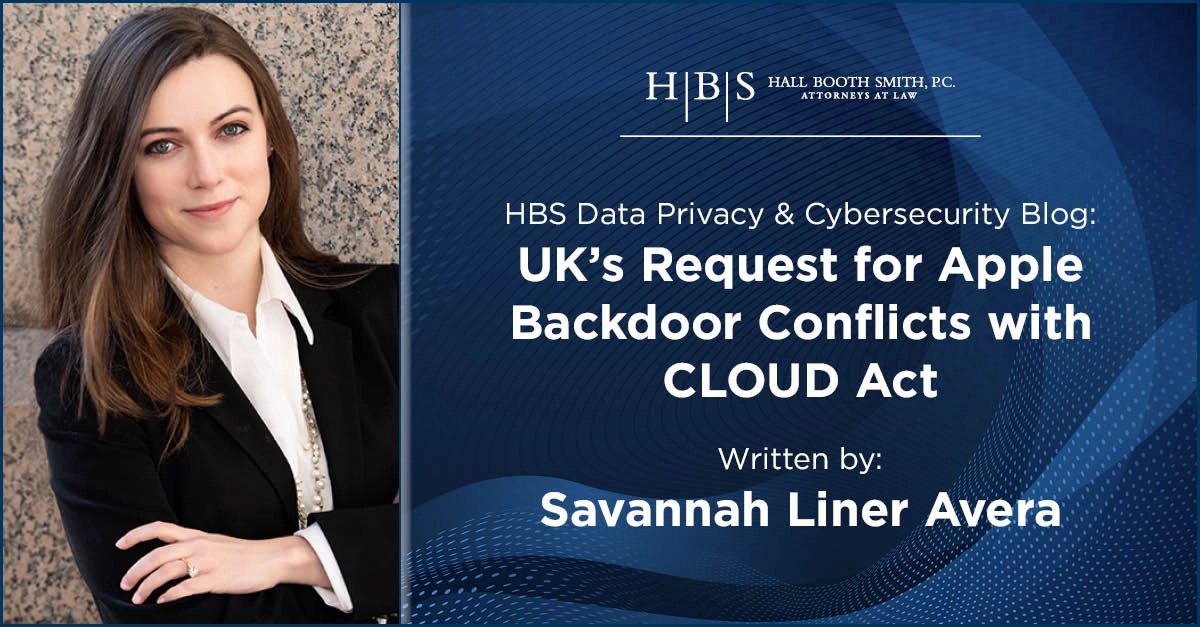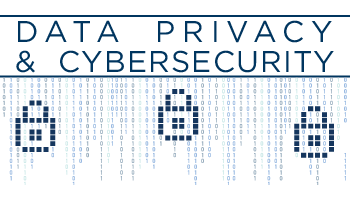
UK’s Request for Apple Backdoor Conflicts with CLOUD Act
“Apple has never created a backdoor or master key to any of our products or services. We have also never allowed any government direct access to Apple servers. And we never will.” [1]
The U.K. is leveraging broad statutory powers—under the Investigatory Powers Act— to create a law enforcement backdoor to otherwise off-limits Apple user data. Despite assurances that this backdoor will only be used on an exceptional basis for serious crimes, this demand raises significant questions about consumer data security and conflicts with pre-existing international data-request mechanisms such as the Clarifying Lawful Overseas Use of Data (CLOUD) Act, 18 U.S.C. § 2523. A forced encryption backdoor exposes global systems to exploitation and contravenes the CLOUD Act’s requirement that foreign governments not impose expansive technical mandates that imperil U.S. providers’ security frameworks.
Apple’s Stance
Previously, Apple’s end-to-end encryption prevented both government agencies and Apple itself from reading user content. However, in March, Apple withdrew its most advanced security cloud data encryption, Advanced Data Protection (ADP), from British users—an unprecedented response to government demands for access to user data.
Pre-Existing Request Mechanism: The CLOUD Act
Traditionally, Apple user data requests were funneled through tedious mutual legal assistance treaties (MLATs). To meet the rising volume of foreign requests for data held by U.S. service providers, the United States Congress enacted the CLOUD Act (18 U.S.C. § 2523) data request framework in 2018. Principally, the CLOUD Act was drafted to facilitate lawful access by foreign investigatory bodies, maintain a regulated gateway, and specifically mitigate extraterritorial overreach on U.S.-based service providers.
Is a U.K.-specific backdoor necessary? So far in 2025, the U.K. has petitioned Apple for access to 1,633 devices, 104 financial identifiers, 1,414 accounts, and 655 emergency. Requests can be in various formats, such as subpoenas, court orders, warrants, or other valid legal requests. The self-reported percentage of honored requests is generally 80%, with financial identifiers only provided 4%. These requests include lawful CLOUD Act requests. This low volume does not seem to justify a request for a special back door.
Potential CLOUD Act Violations and Policy Conflicts
The U.K.’s bid for a universal key to Apple’s encryption can be read as contravening the CLOUD Act’s spirit and possibly its letter. One key motivation of 18 U.S.C. § 2523 was to discourage precisely this scenario—a foreign jurisdiction exerting heavy-handed authority over U.S. technology platforms. Once a major provider alters its encryption framework for one government, there is a de facto precedent. Other CLOUD Act partners might seek comparable concessions, leading to a slippery slope of degraded security under the guise of lawful access.
No Similar U.S. Investigatory Backdoors
In contrast to the U.K., no U.S. federal statute explicitly compels providers to implement an encryption “backdoor” similar to what Britain has demanded. The Investigatory Powers Act is flexing its authority to force providers to degrade encryption at the government’s request. While various U.S. statutes or doctrines empower law enforcement and intelligence agencies to obtain or intercept data, such as CALEA, the All Writs Act, and the Foreign Intelligence Surveillance Act (FISA), all are subject to strict procedural requirements. None affirmatively require the creation of a universal decryption or “key-escrow” mechanism for government investigations.
Conclusion
The U.K.’s call for Apple to degrade end-to-end encryption is a collision of legislative ambitions: on one hand, the lawful imperatives of national security and law enforcement; on the other, the foundational needs of data privacy and cybersecurity. By design, the U.S. CLOUD Act was tailored to avoid this very conflict—preserving due process while dissuading governments from imposing sweeping, extraterritorial surveillance demands. The U.K.’s request appears inconsistent with the CLOUD Act’s objectives and threatens to undermine consumer trust, global cybersecurity, and the delicate international understanding that underpins cross-border data sharing. As of this blog, Apple has appealed the U.K.’s request. The response will likely shape how other global jurisdictions interpret and enforce cross-border data demands in the years to come.
Disclaimer
This material is provided for informational purposes only. It is not intended to constitute legal advice nor does it create a client-lawyer relationship between Hall Booth Smith, P.C. and any recipient. Recipients should consult with counsel before taking any actions based on the information contained within this material. This material may be considered attorney advertising in some jurisdictions. Prior results do not guarantee a similar outcome.
Blog Overview
About the Author
Savannah Liner Avera
Attorney at Law | Atlanta Office
T: 404.954.6973
E: savera@hallboothsmith.com
Savannah Liner Avera protects the rights of clients in health care and cyberspace. She handles aging services litigation and serves on the firm’s Coronavirus Strategic Team that counsels clients on complex matters related to the global pandemic. She represents providers including hospitals, skilled nursing facilities, assisted living facilities, and sub-acute facilities in a wide range of liability claims.




Leave a comment
You must be logged in to post a comment.